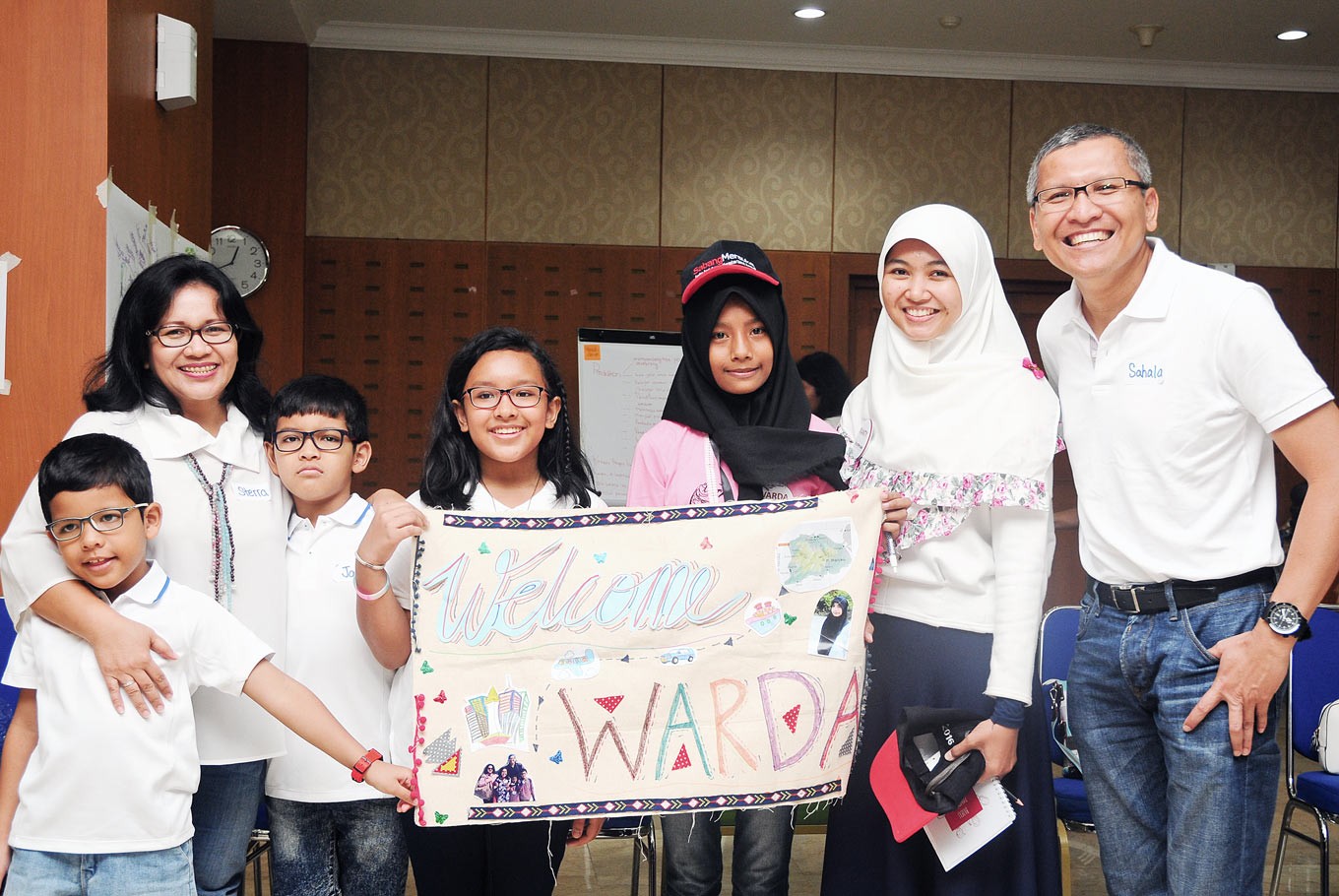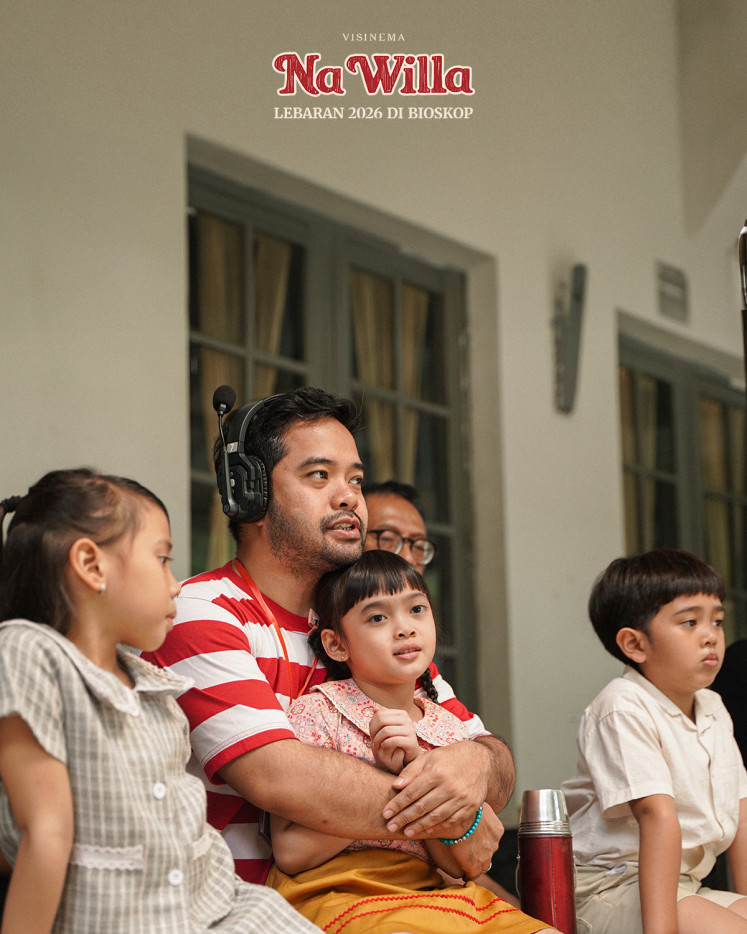Popular Reads
Top Results
Can't find what you're looking for?
View all search resultsPopular Reads
Top Results
Can't find what you're looking for?
View all search resultsSabangMerauke aims to shatter misconceptions
To truly love one another, Indonesians need to properly get to know each other instead of merely coexisting.
Change text size
Gift Premium Articles
to Anyone
“We, Indonesians, need to learn more about the philosophy of Bhinneka Tunggal Ika as well as understand more about the history of Indonesia. Not the ‘what’ part, but more about the ‘why’ part.”
The statement came from Ayu Kartika Dewi, co-founder of SabangMerauke, an intra-nation student exchange program that aims to promote cultural diversity, talk about how the country can come together and reinforce values of Bhinneka Tunggal Ika [unity in diversity], Indonesia’s official motto.
While her sentiment may not be unique, Ayu has spent the last five years putting her words to action through the SabangMerauke program.
She knows that the old Indonesian adage of “tak kenal maka tak sayang,”which roughly translates as “if you don’t know, you don’t love,” rings true, as in recent times unfamiliarity has bred dangerous cultural stigmas and ignorance that has often led to hatred. “[Indonesians] need to travel more to other countries and within the country, not just as a tourist and doing touristy stuff, but they need to really interact with the locals and understand their culture,” Ayu said.
“Only by experiencing diversity and being exposed to other ways of thinking can we learn to expand our horizon.”
Through SabangMerauke, which involves Ayu’s colleagues Dyah Widiastuti, Aichiro Suryo Prabowo, Jourdan Hussein, Putri Rizki Dian Lestari, Tidar Rachmadi and Meiske Demitria, she does exactly that.
It is a simple but effective exchange program. On school holidays, a child travels to a different region of the country to live with a family of a different cultural background for three weeks.
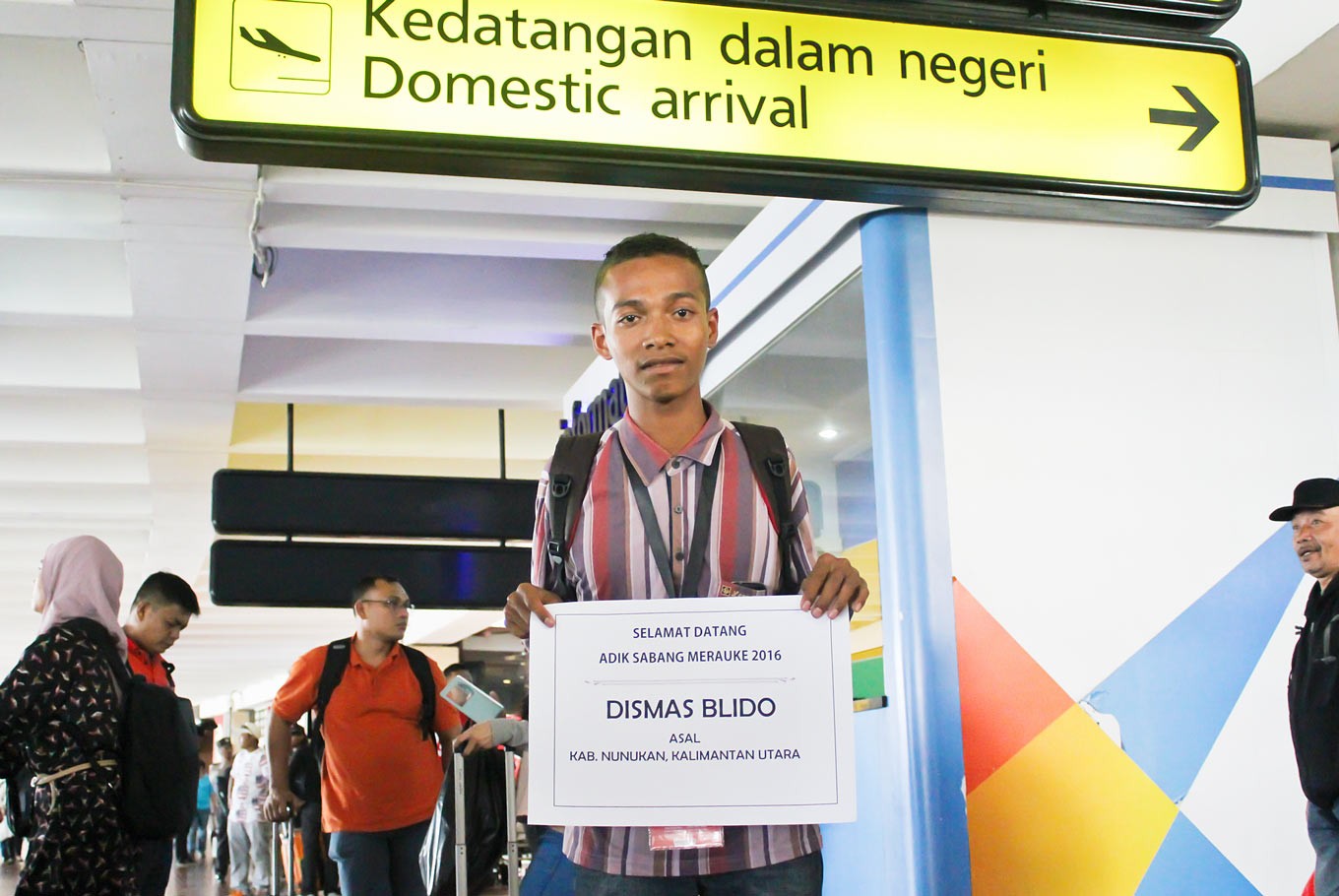 Here I am: A boy arrives in Jakarta to participate in the Sabang Merauke program.(SabangMerauke.id/File)
Here I am: A boy arrives in Jakarta to participate in the Sabang Merauke program.(SabangMerauke.id/File)
The students are accompanied by a mentor, which they refer to as kakak, whose job is to help both parties – the kid and the family – become acquainted and comfortable with each other.
“This unique mechanism will foster meaningful interaction, therefore debunking stereotypes and shattering misconceptions,” Ayu said.
There is also post-program mentoring that ensures communication between the host family and the student is sustained.
The three weeks is filled with activities that aim to encourage cross-cultural understanding.
The activities include Religion Day, when the students visit worship houses and interact with religious leaders; Career Day, when they visit offices and interact with people of various occupations, such as government officers, photographers or CEOs; Nationalism Day, when students meet and write poems for national war veterans and visit the National Museum; Education Day, when they visit the University of Indonesia and interact with students; and Entrepreneurship Day, when students interact with entrepreneurs and learn to creatively solve problems.
So far, the majority of these kids have come from rural areas and carried out the exchange program with Jakarta-based families.
The selection process mostly prioritizes students from post-conflict areas. The hope is that after completing the program, the kids return to their homes with a positive experience that they share with their respective communities.
“[We hope they spread] positive words and beautiful stories about their intercultural and interfaith experiences,” Ayu said.
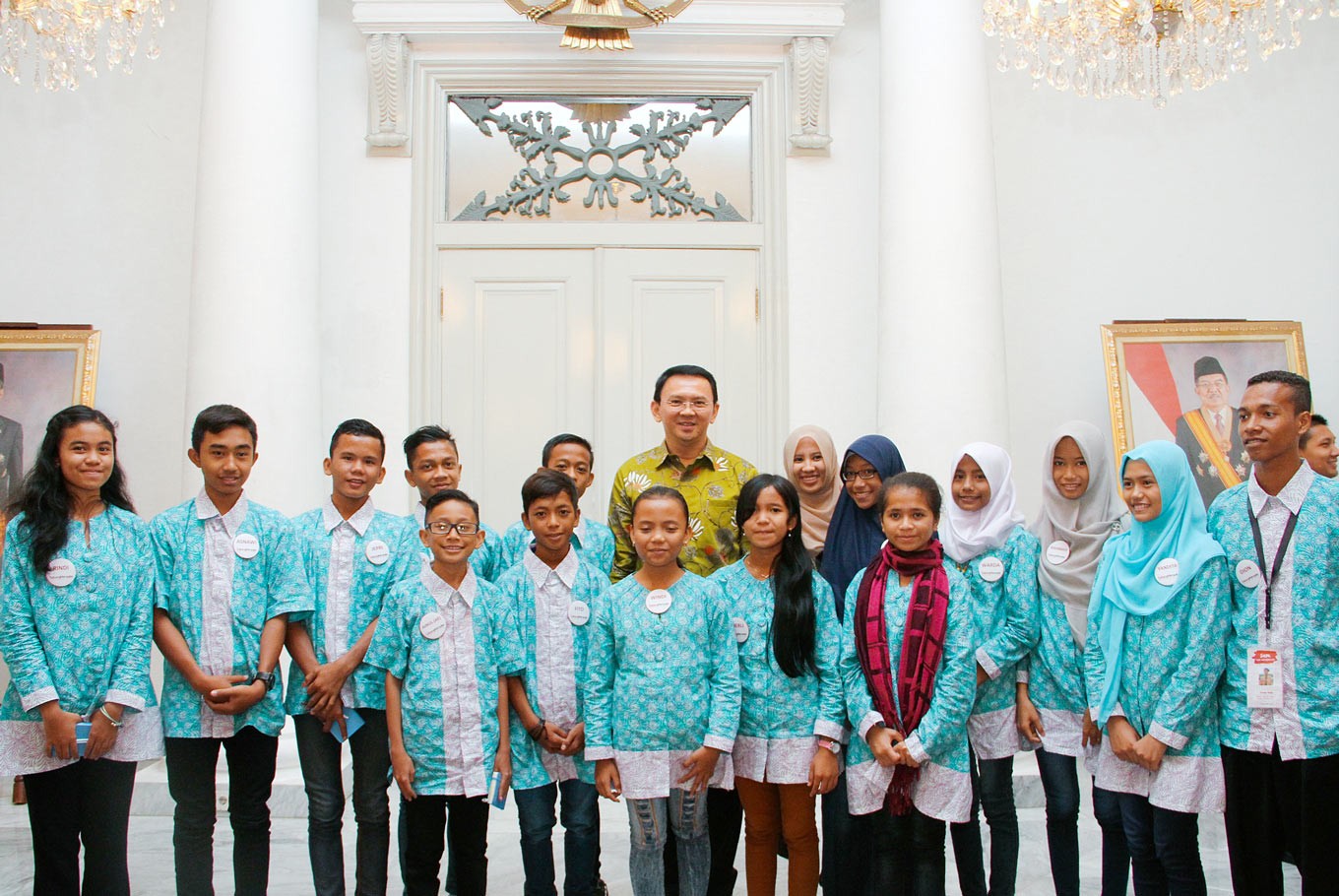 Career day: As part of the program, participating children visit various offices and meet with people from various career paths, including officials like then Jakarta governor Basuki “Ahok” Tjahaja Purnama.(SabangMerauke.id/File)
Career day: As part of the program, participating children visit various offices and meet with people from various career paths, including officials like then Jakarta governor Basuki “Ahok” Tjahaja Purnama.(SabangMerauke.id/File)
Ayu’s idea for SabangMerauke came after a trip in which she taught as an elementary school teacher in a remote village as part of the Indonesia Mengajar (Indonesia Teaches) program. Arriving in the village, she quickly realized that its residents, all of whom practiced Islam, had a limited understanding of other religions.
Ten years before Ayu arrived, a riot occurred between Muslims and Christians in the area, resulting in thousands of casualties and hundreds of thousands of refugees. As a solution, the local government segregated the area into two villages, a “Muslim village” and a “Christian village.”
“I happened to be deployed to the 100 percent Muslim village. Although my students were too young to understand it, there was hatred passed down through the generations,” Ayu said.
One afternoon, she recalled there was potential for another riot. Her students ran to her house in a panic and told her: “Ma’am, please be careful with the Christians. They could burn down our house.”
The students, she said, had never before met a Christian.
“And they didn’t even understand the meaning of riot, but they had so much hatred and anger toward Christians. And I believe this was also the situation on the other side of the fence.”
To change their perception, Ayu requested that a Christian teacher take over for her. The result was surprising, with her students and their parents all responding well to the new teacher.
According to Ayu, the issue of fearing the unknown was inherent in Indonesians, with individuals learning about different religions without interacting with those who practiced them.
“Indonesia is the 4th most diverse country in the world, but a study revealed that 68 percent of Indonesians were against the building of places of worship in their neighborhood by people of different faiths. Indonesia’s education system was not designed to help deal with intolerance as the curriculum was mono-religious, meaning Muslim children only learned about Islam,” Ayu said.
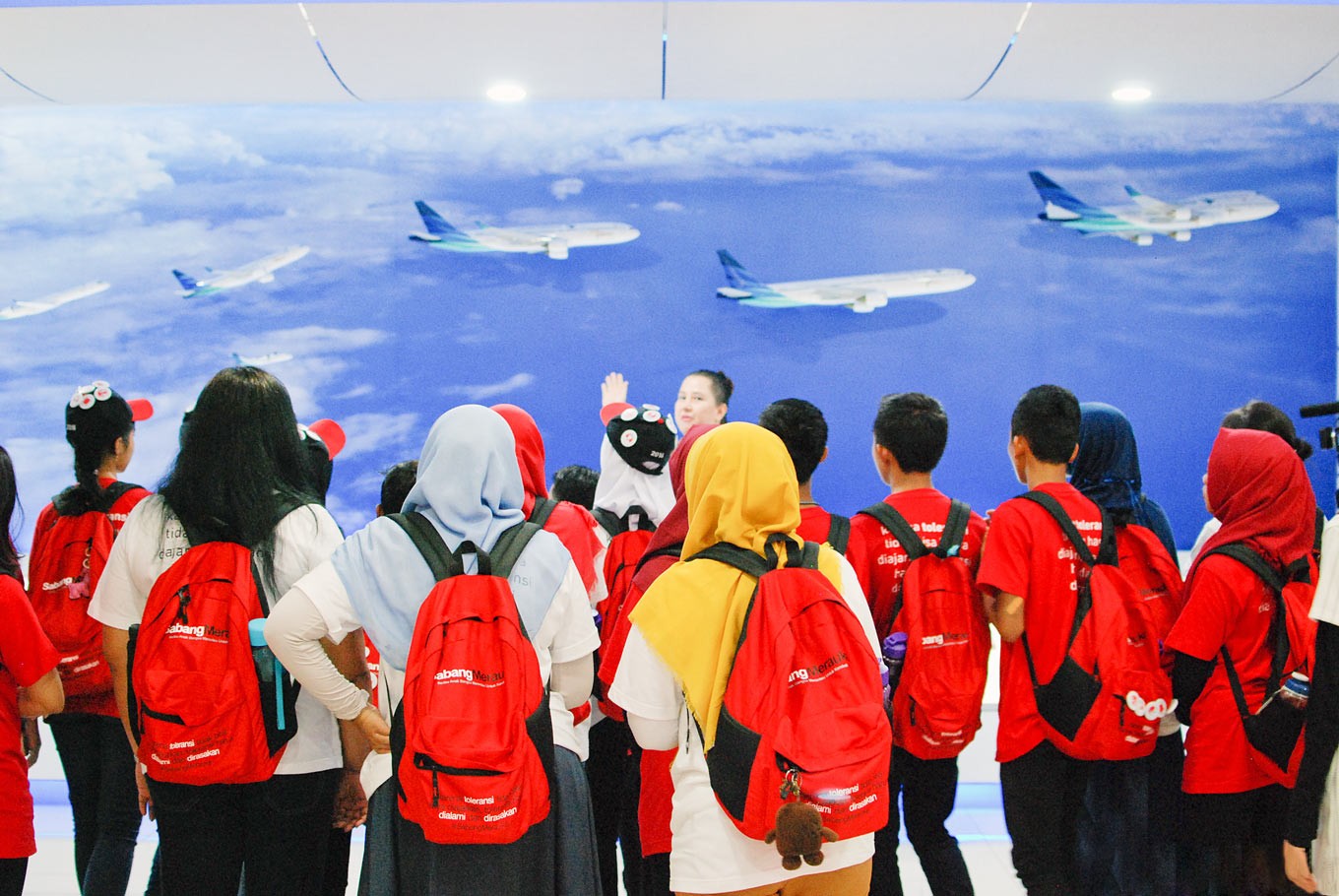 Real experience: Participants join in activities aimed at encouraging cultural understanding.(SabangMerauke.id/File)
Real experience: Participants join in activities aimed at encouraging cultural understanding.(SabangMerauke.id/File)
With challenges related to funding, among other issues, Ayu said that her team had asked the question, “How far we should go in promoting tolerance?”
“For instance, when we created the recruitment criteria for host families, we were discussing whether we could only accept ‘traditional families’,” she said. “How far should we push the envelope to ensure that we do not do more harm than good? Will we create unnecessary debates that will push us away from the core objective? What are the boundaries?”
So far, SabangMerauke has done a lot of good. Ayu knows of students whose lives and perspectives have changed for the better.
“One story that I remember is of Apipa, a Muslim girl from an all-Muslim village who stayed with a Chinese-Christian couple as part of the program. She was initially very scared because they were the first Christian people she had met in her life, and she had heard scary stories about Christians. Initially, she requested several times to be moved to a Muslim family, but we insisted that she stay there. We also facilitated the discussion with the family. After several days, she felt a lot more comfortable,” Ayu said.
“Now they are very close and still keep in contact.”

